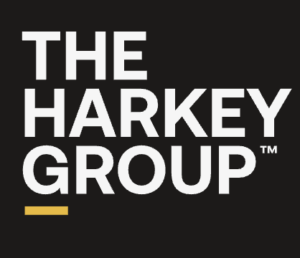How brands leverage scarcity to grow — Mindy Weinstein // Market MindShift
- Part 1Understanding the Power of Scarcity — Mindy Weinstein // Market MindShift
- Part 2 How brands leverage scarcity to grow — Mindy Weinstein // Market MindShift
- Part 3The Neuroscience Behind Human Decision Making — Mindy Weinstein // Market MindShift
Show Notes
-
02:25Four types of scarcityThe four types of scarcity are time-related scarcity, supply-related scarcity, demand-related, and Limited edition. When we hear scarcity, we all think about demand-related scarcity, but theres more to scarcity than that.
-
04:51Whats interesting about scarcity that makes many brands use it?We all know and use one form of scarcity tactics, but it still works on us. DTC brands use demand-related scarcity for their products, and people want and value it more.
-
11:12The brain and scarcity. What makes us fall for scarcity tactics?When something is scarce, our brain automatically thinks it's valuable, so it skips the normal process that the brain takes to make decisions. Our brains are hardwired to try to overcome scarcity.
-
15:50How not to use scarcityKnowing that scarcity works doesn't mean you will run and try to make everyone make these scarcity-driven decisions. You have to create more authentic, fun, and natural scarcity. For instance, beta access, pre-orders, and so on.
Quotes
-
"There's time-related scarcity. So that's any kind of time restriction. That could be flash sales, countdown timers, or coupons that could be limited-time products." - Mindy Weinstein
-
"There's supply-related scarcity. And that's things that have an intentional restriction. A lot of times, sometimes, it can be a supply shortage. But think Nike drops, and think of anything exclusive." - Mindy Weinstein
-
"We have demand related. And that's the one a lot of us think about. Demand related is high popularity, you're selling out because of that, bestsellers, those kinds of things." - Mindy Weinstein
-
"Limited edition. A limited edition is amazing. And businesses that have services or physical products can benefit from it. But that's any twist on the original. And the thing about that one is it falls undersupply. But it draws in customers who want to be unique and have something different than everybody else." - Mindy Weinstein
-
"The thing about scarcity is that it directly impacts our brain. And it's subconscious. So, we have to stop and think about it. Otherwise, we're just going to make decisions. It causes a fear of missing out and causes us to skip the normal decision-making process. Sometimes, it causes us to hyper-focus on something if we can't have it." - Mindy Weinstein
-
"In our culture and society, that limited supply, which is exclusivity, is strong because we want to be different, unique, again, self-expression, all of that." - Mindy Weinstein
-
"When something is scarce, our brain automatically thinks it's valuable. But you stop and think about that. That's what we're talking about with some of the collector items. It's rare and must be valuable. Or even believe it or not, like a restaurant that's hard to get in, you're like, it must be good, it has to be good, because why would so many people want it?" - Mindy Weinstein
- Part 1Understanding the Power of Scarcity — Mindy Weinstein // Market MindShift
- Part 2 How brands leverage scarcity to grow — Mindy Weinstein // Market MindShift
- Part 3The Neuroscience Behind Human Decision Making — Mindy Weinstein // Market MindShift
Up Next:
-
Part 1Understanding the Power of Scarcity — Mindy Weinstein // Market MindShift
Of all the influence factors, scarcity is the strongest because it's primal, but at the same time, marketers completely misunderstand it. What is scarcity, and why is it essential in growing businesses? Listen to Mindy Weinstein, CEO of Market MindShift, as she discusses understanding the power of scarcity.
Play Podcast -
Part 2How brands leverage scarcity to grow — Mindy Weinstein // Market MindShift
Nobody wants what everybody has. At the same time, people will value what everyone appears to be buying but is short on supply. Why? It's one of the powers of scarcity, and scarcity is more than limited-time offers and sold-out products. The more scarcity you can strategically put around your brand, the more you can differentiate your brand from what everybody else is doing. So how are brands leveraging scarcity? Listen to Mindy Weinstein, CEO of Market MindShift, as she discusses how brands leverage scarcity to grow.
-
Part 3The Neuroscience Behind Human Decision Making — Mindy Weinstein // Market MindShift
Excellent marketing is brand over time and sales overnight. As marketers, we have to do both. How do you do it? It's by understanding and leveraging how people make decisions. Our brains are always in search of mental shortcuts when making decisions. What are these shortcuts, and how do you use them in marketing? Listen to Mindy Weinstein, CEO of Market MindShift, as she discusses the neuroscience behind human decision-making.
Play Podcast







